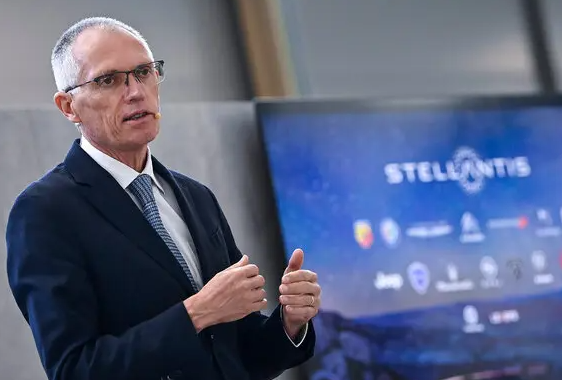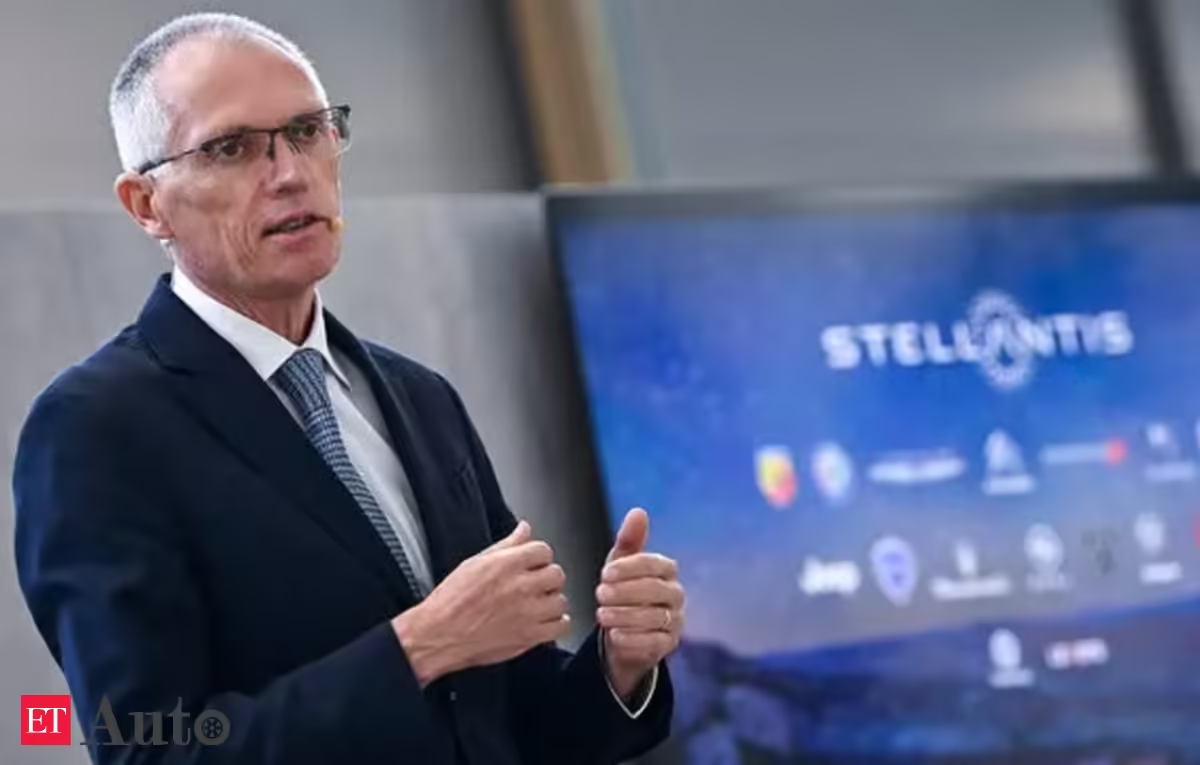
The CEO of automaker Stellantis, Carlos Tavares, has resigned, the company said Sunday, amid a decline in profits and slumping sales in its key North America region.
Tavares, 66, spearheaded the creation of the company in a 2021 merger of Fiat Chrysler Automobiles and France’s Peugeot SA. The company is one of the largest automakers in the world and produces vehicles under an array of brand names, including Chrysler, Jeep, Ram, Dodge, Fiat, Peugeot, Opel and Maserati.
“Stellantis’ success since its creation has been rooted in a perfect alignment between the reference shareholders, the board and the CEO,” the company’s senior independent director, Henri de Castries, said in a statement. “However, in recent weeks different views have emerged which have resulted in the board and the CEO coming to today’s decision.”
Tavares could not immediately be reached for comment.
Tavares’ resignation took effect Sunday, the company said in the statement. Earlier this year, Tavares had announced that he planned to retire at the end of his current contract, in 2026. The company also said that a search for a successor by a special board committee is “well underway.” It added that a new executive committee, headed by Stellantis board Chair John Elkann, would run the company until a permanent replacement for Tavares is named.
Elkann is the grandson of Gianni Agnelli, the Italian industrialist who founded Fiat. Elkann worked closely with Sergio Marchionne, who engineered Fiat’s 2009 takeover of Chrysler, which was going through a bankruptcy.
Fiat Chrysler became profitable and grew under Marchionne, who died unexpectedly in 2018.
By 2020, though, both Fiat Chrysler and Peugeot were struggling to keep pace with other automakers that were investing tens of billions of dollars to develop and produce electric vehicles, and a merger between the two companies was forged. The combined company renamed itself Stellantis in 2021.
Under Tavares, Stellantis flourished for a time following the trans-Atlantic merger, and reported a record profit of 18.6 billion euros (about $19.7 billion) in 2023. He also outlined plans to develop EVs, although Stellantis was moving at a slower pace than its Detroit rivals, General Motors and Ford Motor Co. Bonuses stemming from the 2023 results helped make Tavares one of the highest paid executives in the auto industry.
But the company’s profits have fallen this year, as sales in the United States dropped significantly. It was slow to match rivals’ price reductions and sales incentives, and dealer inventories rose. In response, Stellantis has laid off workers, cut production and left idle a plant in Illinois that it had planned to restart.
In the first nine months of the year, Stellantis’ U.S. sales fell 17%. In September, a group of dealers sent Tavares an open letter, blaming him for decisions aimed at driving up profits in 2023 that they said left the company in a troubled state.
“The intent of this letter is to sound an alarm — an alarm, not only to you, but to the Stellantis board of directors, your employees, your investors, and your suppliers,” the letter said. “The reckless short-term decision making to secure record profits in 2023 has had devastating, yet entirely predictable, consequences in the U.S. market.”
Soon after, Stellantis issued a profit warning, saying the cost of fixing its U.S. operations would dent its bottom line. Specifically, the company said operating profit would, at best, amount to 7% of sales compared with an earlier forecast of more than 10%.
The company’s stock price has dropped more than 50% this year, from a high of more than $29 in March to $13.20, its close Friday.
The transition to electric vehicles has presented challenges for many automakers. While GM, Toyota and Tesla continue to post substantial profits, Ford and Volkswagen have struggled to make money on EVs. EV startup Rivian has had trouble ramping up sales beyond about 50,000 vehicles a year.
Volkswagen recently said it could close as many as three plants, including factories in Germany, a once-unthinkable step for the company.
Tavares was born and educated in Portugal, and joined Renault in his early 20s. He rose through the ranks and became a close lieutenant of Carlos Ghosn, who was CEO of both Renault and Nissan. Tavares worked at Nissan, a Japanese automaker, for several years while it was controlled by Renault. He left Renault amid a falling out with Ghosn in 2013, and was hired as Peugeot’s CEO a year later.
Last month, Tavares announced a new design for large pickup trucks and SUVs, including electric models, and said Stellantis was on track to slash carbon emissions from its vehicles and factories by 2038. “This is our commitment to no-compromise innovation as we deliver clean, safe and affordable mobility to all,” he said.
This article originally appeared in The New York Times.


